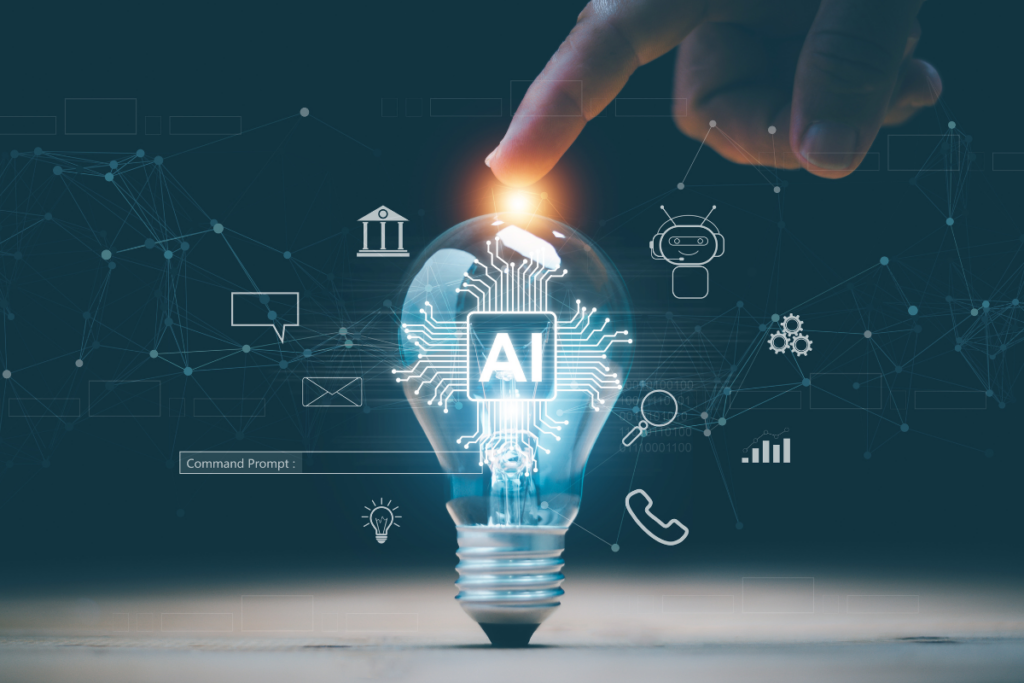Over the past decade, it seems that not a week has gone by without artificial intelligence (AI) making the headlines, whether it's in the form of new technology developments or new applications for AI in a variety of industries. So, it should come as no surprise that AI has arrived in the intellectual property arena, with much more to come at a rapid pace.
In the recent IPWatchdog webinar, “Potential and Pitfalls: Exploring the Future of AI in the IP World", IP thought leaders discussed the value of AI to the IP world and how AI products and services are expected to change the work of IP teams. Speakers were:
- Pallavi Kondapalli, Associate Corporate Counsel, Technology Lawyer
- Erik Reeves, CTO at Anaqua
- Bernard Tomsa, Partner at Brooks Kushman P.C.
- Gene Quinn, President and CEO of IPWatchdog, moderated the panel discussion
Webinar Insights: Approach with Cautious Optimism
In his opening remarks, Gene Quinn noted that, “cautious optimism is key when it comes to AI.” And that sentiment was echoed by the panelists.
Panelists noted that IP teams are embracing AI technology for patent searching, patent mapping, and other areas within IP. The introduction of tools like ChatGPT signifies that AI technology is no longer a future consideration - it is already part of being integrated into IP team’s operational processes.
Erik Reeves said that the development of AI in the IP world cannot be ignored. He explained, “AI is no longer just about a single query and response. We're in an era of exciting breakthroughs and massive improvements with more tools and models that will enable IP teams to work more efficiently and effectively. Many exciting changes are taking place with neural networks and large language models.”
The panelists encouraged IP teams to explore the many opportunities presented by AI technology. However, IP professionals need to be aware of issues such as bias, accuracy, and confidentiality.
Test & Adopt Models to Make the Best Use of AI
One of the biggest opportunities presented by AI technology is the rapid testing and adoption of models. With AI, you can test models very quickly and allow the technology to develop new models. However, it’s crucial to consider the quality of your data and improve and assess data quality before training AI models for consistent, accurate replication of results.
Organizations are realizing they need to prioritize data quality to make the best use of AI. Take law firms for example. Law firms frequently face time-consuming processes when helping clients view and analyze their massive data pools. What’s more, the process is not easily replicable because each client has different strategies, goals, and objectives for their data.
Additionally, bias can creep into AI, reducing accuracy and potentially amplifying harm. However, panelists expect that once the results can be trusted, there will be widespread adoption of AI by IP practitioners.
The Need for Human Oversight
The overriding consensus was that human oversight of AI operations is critical to preventing harm. This concern is reflected in the American Bar Association's Resolution 604, which calls on organizations that design, develop, deploy, and use AI to follow several guidelines, including ensuring that products and systems are subject to human oversight.
"A lot of people just inherently trust AI and think it's always right. But there's still a need to keep a human in the loop, and maybe there always will be," added Gene Quinn.
Those looking to apply AI to IP management must also consider confidentiality. A prime example of this risk is when you're looking for help with a patent application. If the partner you're working with feeds your draft application into ChatGPT, you're exposing it to a non-client. It's no longer confidential.
Finding the Right Partner
Ultimately, it's clear that AI is rapidly changing the IP landscape. AI is changing the way IP and R&D teams work and innovate. Organizations are pivoting by allocating budgets and resources to AI development. Panelists urged IP teams to choose their AI partners carefully.
Anaqua’s AI Efforts
At Anaqua, we’re developing AI solutions working closely with our Client Working Groups, following security best practices, and focusing on creating practical AI solutions that simplify IP work and tasks to help IP teams meet deadlines more easily. For example, Anaqua’s AI Patent Classifier™ revolutionizes the process of creating and maintaining a proprietary patent classification system for your company, a task that often takes hours of time and attention. Additionally, Anaqua’s Document Auto-Processing saves docketing teams many hours of manual work by automatically processing correspondence documents with some of the world’s largest PTO offices.
With the recent release of AQX 11, read more about how the new AI and Document Auto-Processing capabilities will help IP teams at law firms and corporations to be even more efficient, strategic, and empowered.
Common industry terms to know:
- Large Language Model (LLM): LLMs are a category of foundation models trained on immense amounts of data, making them capable of understanding and generating natural language and other types of content to perform a wide range of tasks, according to IBM.
- Neural Network: IBM defines a neural network as a machine learning program, or model, that makes decisions in a manner similar to the human brain, by using processes that mimic the way biological neurons work together to identify phenomena, weigh options and arrive at conclusions.
- Generative AI: Generative AI describes algorithms that can be used to create new content, according to McKinsey, with ChatGPT being a prime example of generative AI.



